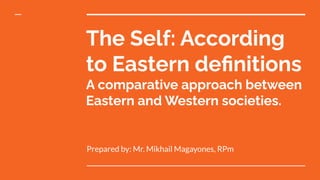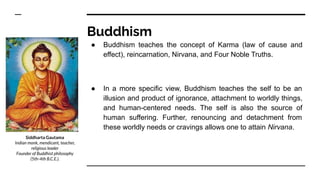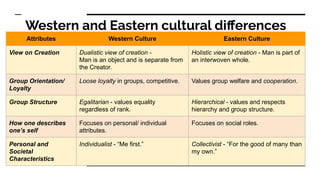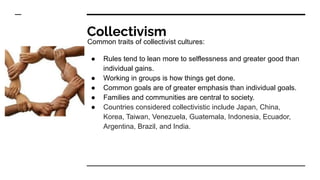1. Eastern philosophies like Confucianism, Taoism, and Buddhism view the self as interconnected with family and community rather than as an individual. Self-cultivation involves repressing individual needs for the good of the group.
2. Western cultures emphasize independence and individualism while Eastern cultures like the Philippines value group cooperation and loyalty.
3. The Philippines exhibits traits of a collectivist culture through close family ties, tradition, and social hierarchy.










